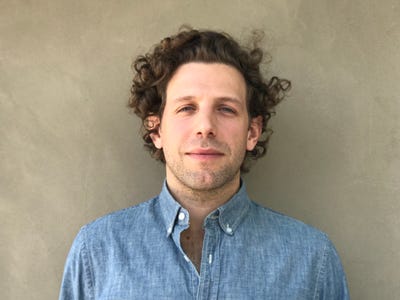Learning meaning by example: Brands that are doing well building meaning, not just productLearning meaning by example: Brands that are doing well building meaning, not just product
These four companies are building meaning in their businesses right from the start.

Seventy-four percent of people wouldn’t care if your brand disappeared tomorrow. Success is predicated on doing more than just filing a white space with a product. It’s about connecting with consumers because what you’re making is meaningful.
Meaning isn’t an advertising exercise. It’s when companies build a business on a strong founder’s passion not just on a perceived consumer need.
There are lots of ways to build meaning in your company. While walking Natural Products Expo East 2018, a few brands caught our eye because they are doing this well. Success remains to be seen, but the following four companies are doing the hard work of building meaning into their business model from the very beginning.
1. Ask the tough questions.
What’s right? What’s a better way? Why am I doing this? Most entrepreneurs start with these basic questions, but Seal the Seasons asked themselves a whole series of “what ifs” that led them to create a new use for an existing supply chain. What if farmers could freeze all of their excess harvest and reduce waste? What if this could provide a year-round revenue stream to small family farmers that depend on a small growing season window and don’t traditionally get access to larger buyers? What if consumers could buy local in the middle of the winter when all that’s available are cellared root vegetables? Local. Picked at peak ripeness. Sounds like they’re on to something.
2. Know the invisible hand.
By invisible hand we mean the one that’s shaping culture. The one that moves you. The Honey Pot is “Made for Humans with Vaginas, by Humans with Vaginas.” There is no bigger cultural conversation than the one this brand finds themselves a part of. Traditionally, feminine care leadership has been white and male. Founder Beatrice Feliu-Espada is neither, and her company’s product offerings reflect what a woman in control of her own body wants: a wholistic, natural solution. They’re owning it with a thoughtful product offering and unapologetic messaging. What will they tackle next?
3. Know your army.
Companies have been leveraging key life milestones that create inflection points and new buying habits for some time now. Becoming a parent is quite possibly the biggest one. So when Meghan and Keith Rowe realized they weren’t alone in wanting to know more about the farming, manufacturing, and purity of their children's food, they tapped into Keith’s European, culinary roots and started White Leaf Provisions. As a Demeter USA-certified kid food company, it’s rapidly becoming a leader for the biodynamic and regenerative movement. They’ve taken known formats like squeeze pouches and containers of applesauce and replaced the food with produce that meets the above-and-beyond standards and guidelines established 100+ years ago. Mainstream scale might look like a challenge right now but everyone was saying the same thing about organic not too long ago.
4. Have a clear “enemy.”
Hemp has been a maligned product for some time. Evo Hemp took it one step further by partnering with a marginalized group of people from one of the poorest places in the US—the Lakota Tribe—to grow it. Their products are about more than another bar, seed or extract. They enable this underserved population to create a sustainable business for their community and for the planet. With a bunch of recent upstarts racing toward hemp and CBD gold, Evo Hemp has been building their business with thought and care for 7+ years. Their enemy is the the old way of doing business. The stakeholders the model takes care of are defining health for people and for planet.
Who did we miss? Please share some other brands you recently discovered that are making more than just a product. Something that’s meaningful. Transformational. Resonant. A brand like the four examples above.
Max Kabat is co-founder of goodDog, which focuses on helping companies move from product to brand by driving mainstream, conscious consumer growth through meaning. He presented, along with Lisa Hyman, “More than a Product: Building a Business that Lasts,” at Natural Products Business School at Expo East 2018.
About the Author
You May Also Like





